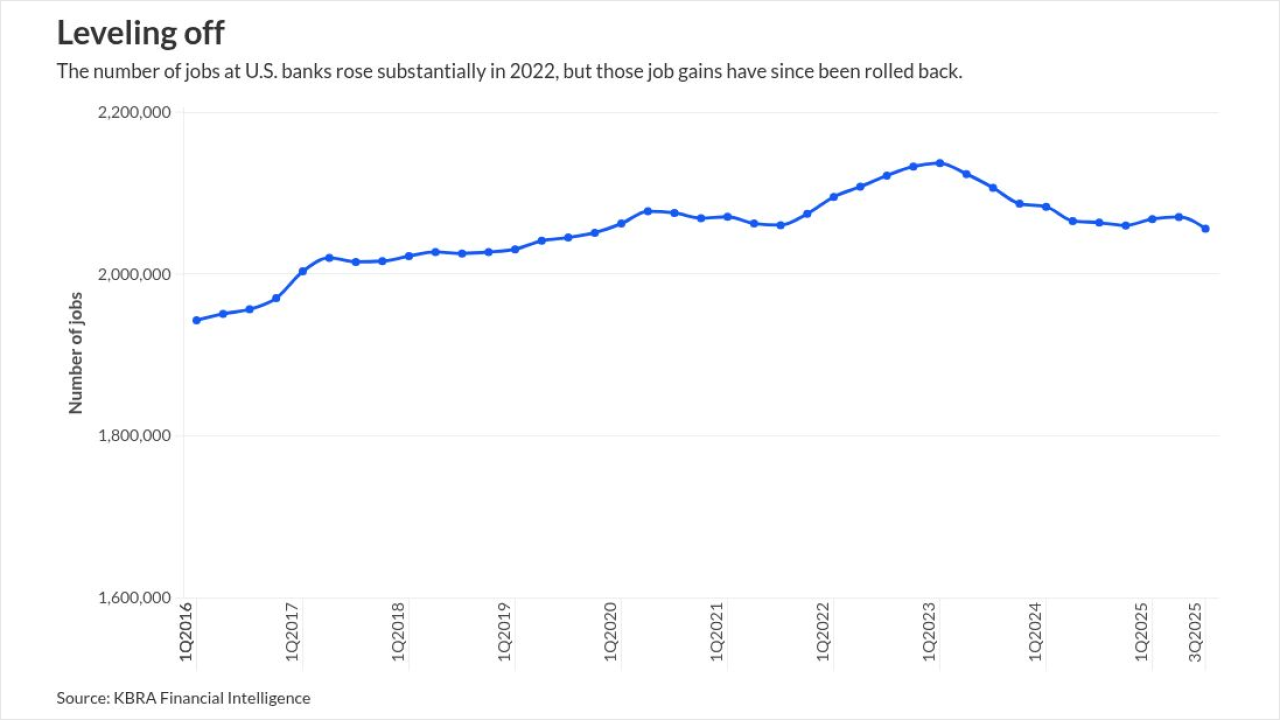- Key insights: Klarna has issued a stablecoin and extended its gift card scale.
- What's at stake: The Swedish financial institution is looking to build a market in the U.S. following its IPO.
- Forward look: Hundreds of banks and non-banks are either issuing a stablecoin or considering a coin.
Following its
The Sweden-based Klarna, which is best known in the U.S. as a buy now/pay later lender, has debuted KlarnaUSD, an effort to tap a stablecoin payments market that is expected to pass $27 trillion in yearly volume by 2027, according to McKinsey.KlarnaUSD launched on Tempo, a Stripe and Paradigm managed blockchain that's designed for payments. Klarna argues that stablecoins can cut costs from cross-border payments.
"With Klarna's scale and Tempo's infrastructure, we can challenge old networks and make payments faster and cheaper for everyone," Sebastian Siemiatkowski, co-founder and CEO of Klarna, said in a release. "Crypto is finally at a stage where it is fast, low-cost, secure and built for scale. This is the beginning of Klarna in crypto."
While dozens of banks are
Klarna is also expanding its gift card program amid signs
"As we continue to grow rapidly in the U.S., this expanded partnership with [Blackhawk Network] gives millions of consumers even more flexibility and control over how they buy and give gifts," said David Sykes, chief commercial officer at Klarna, in a release. Klarna has added to its range of

EMVCo examining agentic payments
As more banks and payment companies adopt
EMVCo is determining how EMV's security and authorization specifications, such as EMV 3-D Secure, EMV Payment Tokenization and EMV Secure Remote Commerce, can be upgraded to manage seamless and secure card-based agentic payments, EMVCo said. ("Tokenization" in this case does not refer to cryptocurrency, but to replacing card numbers with temporary one-off values to prevent use after potential theft).
EMVCo is engaging with the hundreds of industry stakeholders that contribute to the EMV standards; and is also meeting with global technical bodies and associations to identify and evaluate opportunities for collaboration.
"EMVCo developed the global specifications that enable trusted card-based payments for billions of consumers and businesses worldwide. There is now a clear opportunity to collaborate with participants across the industry to extend this experience to support agentic payment solutions," Patrik Smets, EMVCo executive committee chair, said in a release.

Australian incentive marketer plots U.S. move
Wilson Asset Management, Torney Group and Ophir have invested $28 million
The platform, which launched in 2019, has processed more than $10 billion USD in business payments, mostly for small businesses in Australia. The new funding will fuel improvements that will support an expansion in the U.S., where it is partnering with Amex and other payment companies to offer incentive marketing for business travelers.
"As we refine our core product, grow our footprint and build stronger strategic partnerships, we are continuing to shape a strong business loyalty ecosystem for the Australian SME community," Edward Alder, managing director at pay.com.au, said in a release. Banks and payment companies are boosting

Visa expands stablecoin settlement in CEMEA
As it adds technology to
Visa has partnered with digital asset platform Aquanow to support stablecoin settlement in Central and Eastern Europe, the Middle East and Africa. Aquanow will combine its digital asset infrastructure with Visa's payment technology, extending stablecoin support to Visa's network of issuers and merchant acquirers in the region.
"Our partnership with Aquanow is another key step in modernizing the back-end rails of payments, reducing reliance on traditional systems with multiple intermediaries, and preparing institutions for the future of money movement," said Godfrey Sullivan, head of product and solutions for CEMEA at Visa, in a release.
Visa began settling stablecoin transactions in 2023 with monthly volume recently passing a $2.5 billion annualized run rate, according to the card network.
Swiss banks embrace data sharing A consortium of eight Swiss banks and two third party providers are the initial adopters of an open banking program from SIX, the country's stock exchange. SIX operates bLink, an open banking platform that uses a standardized application programming interface to power permission-based data sharing. This enables customers to use their bank account to access service from third parties such as fintechs. SIX anticipates more banks will adopt open banking, noting possible applications currently include account overviews, spending analyses, and budget planners.
Switzerland is behind the curve in adopting bank data sharing.
"Open banking is gaining momentum in Switzerland. With today's launch of multibanking, a concrete use case for private customers goes live," Christoph Müller, head of banking services and executive board member of SIX, said in a release.

Wise cuts out third parties in Japan
Wise has directly connected to the Bank of Japan, which enables the London-based payment firm to execute transactions without bank partnerships. This supports near instant settlement, according to Wise. It also feeds a major part of Wise's strategy, which relies on connections to local partners to reduce the number of steps required to process payments.
Seventy four percent of Wise's transfers arrive in less than 20 seconds through these local connections, according to Wise, adding this is up from 33% in 2020.
Wise, which has similar partnerships in Europe, Asia and Latin America, is also planning a

Mastercard approaches beauty retailers in Latin America
Mastercard has partnered with L'Oreal to launch a business credit card designed for salons and beauty parlors.
Mexico is the initial market, though the card network plans to offer the card in other Latin American and Caribbean markets. While it's pursuing a distinct niche, Mastercard says there is a large market. There are more than 350,000 salons in Latin America and the Carribean, according to Stylist Associations. Most of these salons use cash.
Mastercard estimates more than 90% of all small businesses in the region are cash-only, creating an opportunity for new payment flows.Other payment companies, such as Block, have also found demand among

Checkout.com plugs into agentic protocol
Banks and payment companies that are worried about the all-digital nature of agentic AI are signing onto
Checkout.com, which is building tools for agentic commerce, says it will support the Agentic Commerce Protocol (ACP), a Stripe/Open AI-managed model that shoppers, merchants and processors can use to guide transactions.
This will enable Checkout.com's merchants to offer checkout inside platforms including OpenAI's Instant Checkout. "Agentic commerce marks the next chapter of digital commerce, and demands a different approach," Meron Colbeci, chief product officer at Checkout.com, said in a release. The London-based Checkout.com is also seeking






